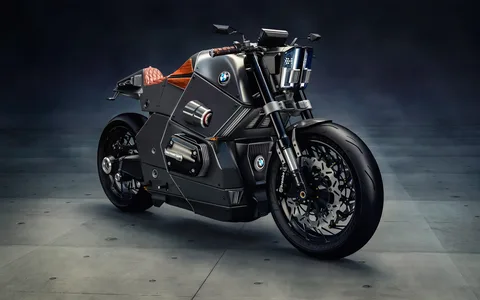Whether you’re getting ready to sell a used motorcycle or in the market to buy one, understanding the true value of different types of bikes is essential. The value of a motorcycle is influenced by a variety of factors ranging from its age and condition to brand reputation and market demand. Whether you’re buying or selling a motorcycle, understanding these factors can help you make more informed purchasing decisions. Here are some key elements that affect the value of a motorcycle.
Brand and Model
The brand and model of a motorcycle play a significant role in determining its value. Well-established and reputable brands tend to hold their value better than lesser-known ones. Popular models with a strong following also have higher demand, which can positively impact their value. If you need help understanding motorcycle values, this is one of the main elements to keep in mind.
Age and Mileage
Like most vehicles, motorcycles generally depreciate over time. The age of a motorcycle is a crucial factor in determining its value. However, low mileage can help offset some of the depreciation. A motorcycle with high mileage may have experienced more wear and tear, reducing its value.
Condition
The overall condition of a motorcycle greatly influences its value as well. Well-maintained motorcycles with minimal signs of wear, scratches, or mechanical issues will command a higher price. Regular servicing, cleanliness, and proper storage can contribute to maintaining a motorcycle’s value.
Modifications and Customizations
Modifications and customizations can affect the value of a motorcycle, too. While some modifications[, such as adding a custom look on your Suzuki,] might enhance the appeal and value of a bike, others may deter potential buyers. It largely depends on personal preferences. Highly customized motorcycles may have a niche market and may appeal to a specific audience, potentially impacting their resale value.
Market Demand
The supply and demand dynamics of the motorcycle market can also significantly impact a bike’s value. If a particular make or model is in high demand, its value may be higher. Conversely, if there’s a surplus of similar motorcycles available, prices may be lower due to increased competition.
Rarity and Collectability
Certain motorcycles gain value over time due to their rarity or collectability. Limited edition models, discontinued motorcycles, or those with historical significance often hold their value well and can appreciate over time. The uniqueness and desirability of such motorcycles contribute to their increased worth.
Reputation
The reputation of a motorcycle brand can affect its value. Brands known for reliability, performance, and durability often warrant higher prices in the market. Positive reviews and endorsements from reputable sources can also contribute to a motorcycle’s value.
Local Market Factors
The value of a motorcycle can also be influenced by local market conditions. Factors such as regional preferences, climate, and local regulations can impact the demand for specific types of motorcycles. In turn, those aspects can affect motorcycles’ values.
Documentation and Service History
Having complete and accurate documentation, including service records and proof of ownership, can positively influence the value of a motorcycle. It provides potential buyers with confidence in the motorcycle’s history and maintenance. That added confidence may be reflected in a bike’s perceived value.
Knowing the True Value of a Motorcycle
It’s important to note that while these factors generally affect motorcycle values, individual circumstances and buyer preferences can vary. Conducting thorough research, considering multiple factors, and seeking expert opinions can help you determine the true value of a motorcycle in a specific context. Keep these elements in mind when selling or searching for a motorcycle to ensure you get the most value for your money.








